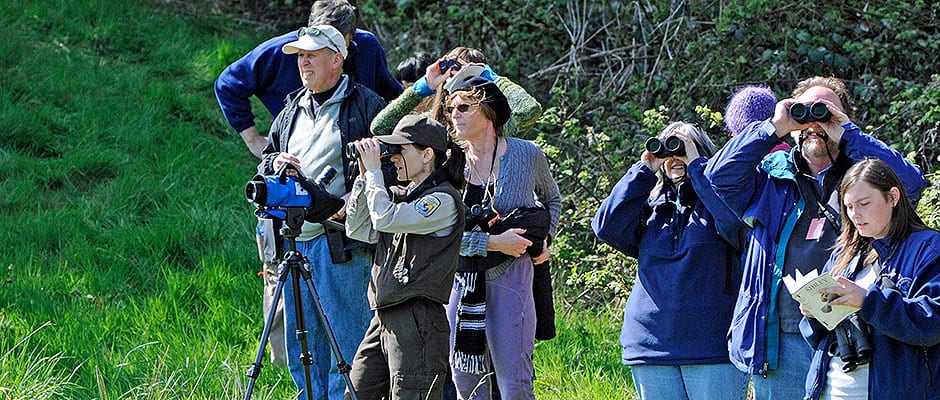Share this article
Hunters and Birdwatchers More Likely to Conserve
The more time you spend outside hunting or birdwatching, the more likely you are to help wildlife conservation efforts, a recent study shows.
Researchers conducted a survey experiment to determine whether wildlife recreationists were more likely to engage in wildlife conservation efforts including activities such as donating to support local conservation efforts, enhancing wildlife habitat on public lands and advocating for wildlife recreation, in the study published in the Journal of Wildlife Management.
They sampled hunters, birdwatchers, hunter-birdwatchers (people who regularly participate in both activities) and non-nature-based recreationists in rural New York, and found hunters and birdwatchers were more likely to participate in conservation behaviors while hunter-birdwatchers were the most involved in conservation behaviors.
“This reinforces the notion that we protect what we’re familiar with and what we care about,” said Caren Cooper, the assistant director at the biodiversity research lab at the North Carolina Museum of Natural Sciences, and the lead author of the study. “This means there’s all the more reason to support activities that foster that appreciation.”
Most surprisingly, Cooper found that after discussing her findings on the Scientific American’s Guest Blog, hunters and birdwatchers engaged in discussions that showed they were unaware of each other’s passion for conservation.
“Hunters and birders were shocked with the results about one another,” she said. “Except for people who do both, the two different communities failed to realize they’re kindred spirits when it comes to conservation.”
Cooper said birdwatchers are often put off by hunting, and hunters don’t seem to see the knowledge that goes along with birdwatching. But after learning about the study, both groups realized that they share a common passion for wildlife conservation.
To complete the study, Cooper and her team mailed out survey booklets to landowners in rural New York. For their hunter sample, they got information from hunter license information. Although finding birders proved a little more difficult because of lack of the need for licenses, the researchers found some birdwatchers through the Cornell Lab of Ornithology. Some surveys were also administered online.
Although hunters and birdwatchers were most active in wildlife conservation, on average, the study showed all participants engaged in environmental lifestyle behaviors such as recycling and energy conservation.
“[Non-nature-based recreationists] engaged in the basics of recycling and energy conservation,” Cooper said. “It was good to see these acts were very prevalent whether they were outdoors or not. But birdwatchers and hunters engaged in the more hardcore conservation like donating money and enhancing land for wildlife.”
Cooper hopes the study’s findings help agencies diversify their constituency, she said.
“This can help them with new sources of revenue and volunteer resources like citizen science,” she said. “This also dovetails with popular movements promoting health benefits of outdoor recreation, so managers could promote wellness benefits of wildlife recreation and get conservation benefits in return.”
Header Image:
A group of people participate in a birdwatching tour in Nestucca Bay National Wildlife Refuge in Oregon. A recent study found that people who engage in birdwatching and hunting are more likely to participate in wildlife conservation behaviors.
Image Credit: George Gentry/U.S. Fish and Wildlife Service








